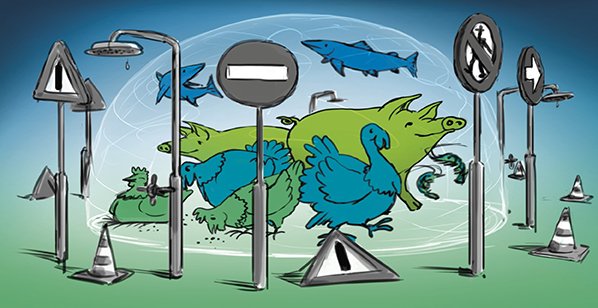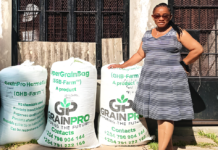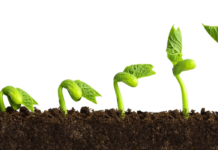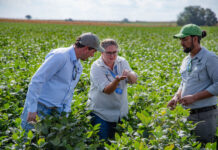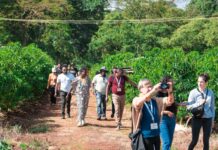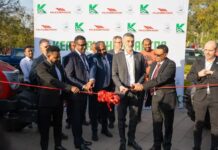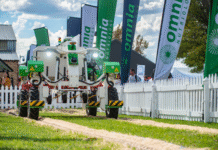As leaders in multispecies animal breeding, Hendrix Genetics recognizes that strong biosecurity measures play an important part in keeping animals safe and healthy. Fundamental to livestock production, biosecurity should act as the first line of defense to prevent, control and manage risks to life and health.
Preventing as main measurement
With biosecurity being the most effective and inexpensive means of disease control available, it’s important to understand that no single disease prevention program would be effective without taking proper biosecurity measures. Preventing disease outbreaks are key to maintaining the health of your animals.
Animal disease outbreaks lead to mortality, reduced productivity, required treatment, increased labor and management costs as well as the loss of valuable genetic material from certain animals. Biosecurity procedures should be followed as a precautionary measurement. Animal diseases can have significant economic consequences from restrictions being placed on a specific location, region or even country by its trading partners. , Hendrix Genetics is safeguarding biosecure stock of animals to limit disruptions in the value chain.
As an essential part of animal breeding, biosecurity includes management, farm design, decontamination, rodent, bird, insect control and immunization, all of which have a direct impact on productivity and profitability of any animal breeding company. Hendrix Genetics has implement procedures that help to prevent pathogenic agents from entering farms and minimize their affect on the health status, welfare and technical results of all our animals. When followed correctly, biosecurity measurements prevent incidences from taking place but also aid to control and manage health risk occurrences.
High health status
As a multi-species primary breeding company, we produce and distribute breeding stock all over the world. To ensure business continuity and prevent transmission of disease agents to customers, we maintain a high health status. Utilizing global standardized biosecurity protocols to implement compliance we ensure clean stock is delivered to all of our customers.
Beginning at the start of the protein value chain, we as a company must assure that the health status of all breeding stock meets the customers’ requirements. In order to provide customers with the best stock possible, we ensure that our animals are maintained in secured, controlled environments and are screened and tested accordingly. All Hendrix Genetics animals must meet the following requirements:
- Must be free from notifiable diseases, according to the OIE list.
- Health status must comply with national animal health standards.
- Health status must meet the international veterinary import requirements of the countries where we have customers / where we want to deliver animals.
- Health status must meet “agreed to” customers’ requirements.
- Entry of organic and non-organic material into Hendrix Genetics units/facilities must be limited to an absolute minimum, so protocols to avoid involuntary entry of these materials must be in place.
Superior genetic potential can only be expressed to the maximum in a healthy and biosecure environment. Biosecurity and management practices both play a significant role in achieving and maintaining good health status. If health status requirements are met, the return on time and money invested will be optimized through achievement of the maximum genetic performance of our breeding stock.
Security of supply (as backup)
Hendrix Genetics ensures the security of supply by preserving our global gene pool. Production of any product (pure lines, GPS, PS, commercial) must be split on at least two different locations at the same time. These two different locations must work independently and the distance between them must prevent the risk for a natural disease spreading from one farm to the other. Distance must also prevent for both sites to be included in the same restriction area. For all animal species with markets on different continents, production must be shared on a minimum of two continents to minimize the consequences of panzootic diseases.
For example, if one of our pedigree flocks was contaminated and destroyed due to a very high mortality, regulation (inside a stamping out zone) or contamination reflecting in severe damages to customers without possibility to run a successful eradication plan on a short term, we would still be able to provide high quality genetics to customers across the globe.
Securing supply as a backup biosecurity measurement enables Hendrix Genetics to continue to help feed a growing world population. We have set the standard for sustainable breeding through providing safe worldwide supply.
Our grandparent laying hen farms and hatcheries in Brazil are leading by example and have been awarded AI Free compartment status, granted by World Organization for Animal Health (OIE) as well as the breeding complexes, grandparent farms, and hatcheries in the Netherlands. This status allows us the ability to ship to customers all over the world which helps ensure that we are doing our part in fighting the global food challenge.
Future – breeding for self-reliant animals
With biosecurity as the best defense to keep all diseases out, this is not always possible, especially on a commercial farm with higher densities of animals in the region. For that reason Hendrix Genetics is breeding for self-reliant animals. Animals that can handle health challenges or at least recover quicker. Self-reliant animals are easier to manage and deliver return on investment.
Layers: Pioneering research conducted by Wageningen University in the Netherlands and Hendrix Genetics revealed a genetic link to natural antibodies (called: NAbs) with huge potential to impact productivity, biosecurity, and sustainability.
Turkeys: Hybrid Turkeys walking score with force plate.
Swine: Hypor Magnus delivers less than 5% drop in average daily gain growing faster than the competition, with consistent growth and less variation among pigs from birth to market.
Aquaculture: Hendrix Genetics utilizes differentiated breeding in aquaculture based on health challenge tests of families.
Traditional poultry: With slower growth and natural resilience SASSO birds have key features of sustainable poultry breeding with enhanced disease control and disease-resistance.
Practicing good biosecurity is the best method in preventing disease outbreaks and keeping animals on your farm healthy. Through following biosecurity protocols, Hendrix Genetics contributes to better breeding today, for a brighter life tomorrow, strengthening the industry by maintaining strong supply channels with high quality animal genetics.
Source : Hendrix Genetics


